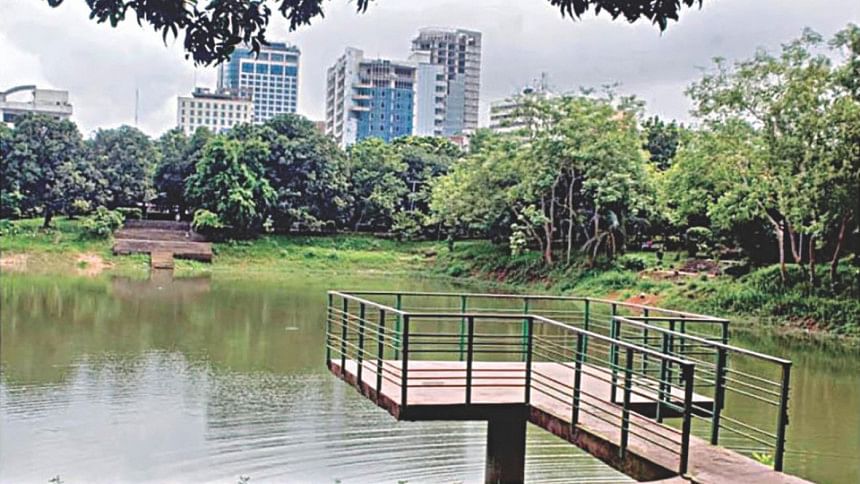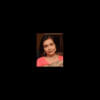The other side of social responsibility

Ever since I returned to Dhaka in 2011, I have seen how fast Dhaka has been growing. The GDP growth rate has been phenomenal but, with economic wealth, multifarious challenges have come to the fore: land- and river-grabbing, tree-felling, and endless construction changing the landscape of the city.
Recently, Dhaka topped the rankings of the world's cities with the worst air quality and one of the reasons for this is that the city is being stripped of most of its greenery. Even a few trees can improve air quality and provide a sense of well-being, thereby helping people reduce stress. Consequently, the few parks that are left in this concrete jungle are like gems for the city-dwellers. Yet, even these parks, where many people of all ages go to hoping to momentarily escape the suffocating fumes of city traffic, are not maintained properly. A terrible experience I had a few months ago will illustrate the callousness of those in charge of one of these rare oases.
One fine evening last November, I went for a walk in the nearby park. The park is known by its two names, "Ladies Park" and "Rashtropoti Bicharpoti Shahabuddin Ahmed Park", situated on Road 83, Gulshan. Having had knee replacement surgery, I had been advised by my doctor to walk for 45 minutes every day as part of my recovery. I was walking with my mobile phone in one hand towards the right side of the circle on the road. I passed the place where, as usual, some men were playing badminton under bright lights. I then crossed the chancery police guard room. After a few minutes, I came to a corner of the park. It was completely dark—the bulb on the light post was broken.
I carefully stepped forward but there was no road, only a ditch covered with sharply broken bricks for construction. My canvas shoes hit one large brick and I fell headlong on the bed of bricks. I made a painstaking effort to get up but could not. My body was inert. Blood was oozing from my right knee with the cut artery near my right eye spurting out blood. From my recumbent position, I could see about 20 yards away the badminton players continuing to play merrily.
After what seemed like ages, a chancery policeman saw me. He screamed, "Blood, blood!" Other constables came running and one brought a newspaper to stem the flow of blood near my right eye. I whispered with great effort to ask them to pull me up. They caught hold of my hair and arm and pulled me up towards a stall where a man measured my blood pressure.
My last call on my mobile phone had been to my driver so with difficulty I pressed the call button and managed to get him. "Come quickly," I whispered. He came running.
Suddenly, a man appeared out of nowhere saying, "I am an advocate of the Supreme Court. I can take you to United Hospital."
"No, Apollo Hospital," I murmured.
I was somehow carried to my car. The advocate sat down beside me. I tried to speak to him pleasantly on the way.
In the hospital's emergency room, the physician on duty immediately took me in. The surgery took one and a half hours and medicines were prescribed.
Pushed in a wheelchair, I was brought towards the exit and found to my surprise the advocate standing there. I asked the nurse to hand me my bag so that I could pay the hospital bill with my credit card.
"No, I will pay and you can pay me back. Using credit cards is dangerous," the advocate said. I had used credit cards many times at this hospital but was too weak to remonstrate. The advocate paid the bill of Tk 18,209.75. My driver noted down his address so that the money could be returned.
I drove back with him saying, weakly, that I would initiate a case against the park authorities for not taking precautions for walkers.
"You don't have to do it. I shall initiate a case for you," the advocate assured me. He called me the next day saying that he had lodged a case. I returned his money, sent a "Thank you" card and a bouquet of flowers for his wife.
He wanted to come and see me with his family. When I invited them over, he was delighted but expressed his regrets at the last moment. From then on, he neither responded to my calls nor replied to my text messages. He disappeared as suddenly as he had appeared in the park.
I waited but eventually found that no case had been lodged. His assurance had been a hoax.
I got the details of the general secretary of the park and spoke to him. "I had an accident in November in the park," I said.
"I know, you fell down. I saw it." He had been playing badminton.
"Why was there no light?" I asked. "It was out of order," he replied indifferently.
"Why was the area not cordoned off to avoid accidents?"
"Not necessary."
"What? I was seriously injured!" I exclaimed.
"People will be able to walk safely when the road is fixed," he replied.
"Why are the roads not properly illuminated?"
No answer.
I was appalled at his complete lack of compassion. He had been playing badminton with thousands of watts of lights and did not bother to care about what happened to a senior woman lying on the ground, with blood splattered on sharp bricks, even though he had seen me fall!
The accident has left me with acute pain in my knee and right eye along with sharp headaches but all that pales in comparison to the shock and disappointment I feel about my fellow human beings. An official in charge of a park meant to provide relief to the residents of the area did not have the sense of responsibility to make sure the lights were working so accidents would not happen. He didn't have the common decency to help someone who had been injured because of his negligence.
We take pride in our economic growth; we demand quality education, health services and implementation of affirmative reforms. But, it seems we do not give enough importance to social values like good citizenship, responsibility, accountability, honesty, human rights, freedom of expression or even basic human decency. Without these values, no matter how much we "develop" economically, as a country, we will remain handicapped when it comes to the most fundamental principles.
Selina Mohsin is a former ambassador.





Comments